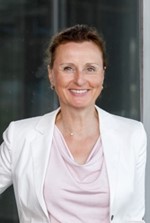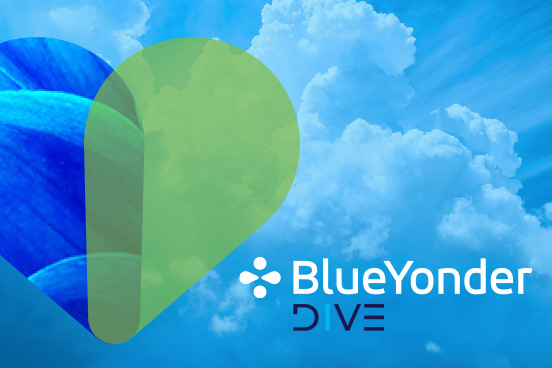
In today’s DIVE In blog, Kristin Szekat, Innovation and Incubation, VP at DHL, shares her thoughts on diversity and inclusion, personal anecdotes, and advice to reach your goals in our “Fearless Females of Supply Chain” Blue Yonder Live. A Blue Yonder customer, Kristin has over 20 years of experience in logistics and supply chain. She offers insight into the obstacles she has faced and how confidence and believing in oneself is the most vital ingredient for success. Like so many of our other customers, her knowledge and expertise provide inspiration that allows us to build a more equitable and diverse world.
What do you think are the biggest obstacles to reaching a diversified workplace?
I work in logistics, which has always been very male-dominated, but this is something DHL is trying to change. A genuine cultural shift takes time, but we recognize that we are on a journey – the right journey – but it will take time to achieve the end goal. I believe that once more women reach higher management positions in the supply chain industry, we will have a pull effect with more women advancing their careers in this area. To reach a diversified workplace, this pull effect will attract more women to apply for supply chain management roles and encourage women to move into different positions, which is an excellent way of achieving a diversified workplace.
Can you share your thoughts on inclusion from a gender perspective?
When it comes to inclusion in the workplace, it is much more about acceptance, the environment, and the culture within these settings that make a workplace more attractive. I think it is essential that we welcome men and women in the same way. This should also allow women to see themselves in different positions.
What is the biggest challenge for the next generation of women, and how can we be strong role models for them?
I think there are still challenges to overcome. We are not where we should be, but we are in a much better position than previous generations. We see from different countries and industries that fewer of these same gender-specific roles exist. I think it is great to see that development. I have also noticed that the confidence and self-image of women has changed. They achieve a greater balance between their personal life and career. They have much more confidence and know what they want to achieve and what they want to do. This is definitely a step in the right direction.
The key for me when it comes to strong role models is that we shouldn’t see each other as competitors but instead try to encourage each other to take on more responsibilities and to see each other as enriching the organization. I think this is important to avoid unconscious bias.
What are the top three pieces of advice you would like to share with other women who might help them reach their goals and become boundary-pushers themselves?
I think a piece of advice stems from personal experiences or observations, but it doesn’t mean that you have achieved it all yourself. If I had to choose my top three pieces of advice, they would be:
- Be yourself and do not try to copy behavior. I believe being yourself and who you are is key to success. There are always certain expectations that you want to fulfill.
- Trust yourself and believe in your capabilities. Be proud of what you are doing, and don’t underestimate your value. I think it is important to focus on what you can do and achieve rather than looking for what you lack. For example, men typically focus on what they can do and succeed in an interview, whereas women often look at the lack of specific experiences. Yes, you might need to learn things, but be more self-confident.
- Be bold enough for self-promotion. Nobody wants to stand out and shout out what they can or cannot do, but I think it is essential. For example, try to present at team meetings to make yourself visible and recognized by the organization.
What does ‘creating the new normal’ mean to you?
I think the new normal would be if we no longer had to talk about diversity and inclusion. However, there are still challenges to overcome. We are on a journey, but we are on the right journey. Many companies are focused on hiring more women into different positions, even though the percentage of women in specific industries is still low, as well as at the board level. So, there is still room for improvement, but if we continue this journey, hopefully, in a few years or a decade, we will not have to discuss this anymore. Also, I think hiring somebody for a certain role should be based on capabilities, knowledge, and personality. Try to allow people to join and do things and avoid judging by putting people into pockets. For me, this would be the new normal, and I think we all can contribute to achieving this.
Watch the recent “Fearless Females of Supply Chain” Blue Yonder Live session with Kristin Szekat.

